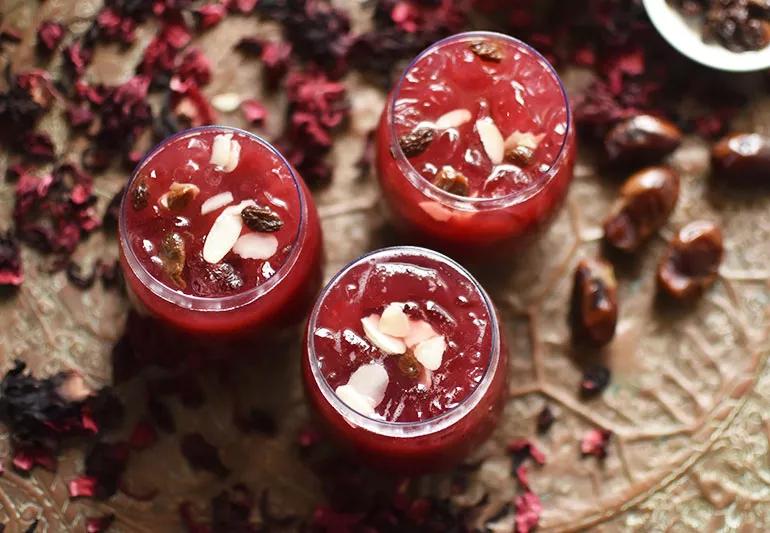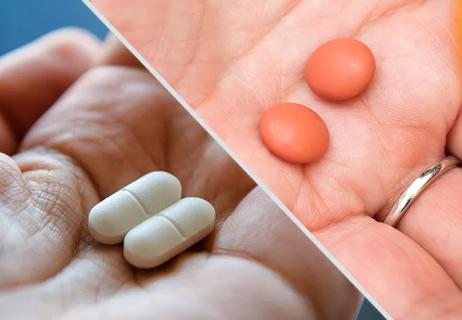Advertisement
There’s a perfect tea option for every condition

Let’s talk about your health over a cup of tea.
Advertisement
Cleveland Clinic is a non-profit academic medical center. Advertising on our site helps support our mission. We do not endorse non-Cleveland Clinic products or services. Policy
Study after study shows the benefits of drinking tea, essentially verifying what your ancestors believed back in ancient times. The humble tea plant — a shrub known as Camellia sinensis — has long supplied an answer to ailments.
But what tea is best? There isn’t just one option, after all. Just look at your local grocery store. Dozens upon dozens of options sit on the shelf waiting to be tossed into your cart. It can be a little overwhelming.
To make sense of it, we turn to dietitian Beth Czerwony, RD. “Different teas offer different benefits,” she says. “Choose what fits your need.”
Read on to find which will suit you to a… well, T.
When it comes to tea, green tea gets the gold. “Green tea is the champ when it comes to offering health benefits,” says Czerwony. “It’s the Swiss Army knife of teas. It covers a lot of territory.”
A medical literature review offers a snapshot of those benefits, linking the consumption of green tea to:
The healing power of green tea is linked to catechin, an antioxidant compound found in tea leaves. It helps protect your cells from damage caused by out-of-hand free radicals reacting with other molecules in your body.
Advertisement
All that, plus green tea tastes pretty darn good, too. (That could also explain why worldwide green tea production is expected to hit nearly 3 million tons by 2023.)
Is your stomach feeling a bit topsy-turvy, like you just wobbled off a swooping and looping rollercoaster? The solution is a tea made from ginger, a time-tested spice that has been calming bellies since ancient times.
Studies show that ginger naturally combats nausea, making it a go-to remedy if you’re dealing with morning sickness during pregnancy, notes Czerwony.
Ginger also offers proven digestive benefits by helping your body move food from your stomach to continue its digestive tract journey. Speeding up that process works to calm indigestion and ease stomach distress.
“Ginger relaxes things in your gut, which can make you a lot more comfortable if you’re having tummy trouble,” Czerwony said.
If ginger isn’t to your liking, peppermint tea also can serve as an aid against indigestion. Peppermint, however, is best for issues lower in your gut. It can actually aggravate higher-up issues such as acid reflux.
If you’re worried about your lungs, here’s how to breathe easier: Drink herbal tea.
Anti-inflammatory powers in herbal teas can help loosen airways tightened by conditions such as asthma, says Czerwony. She recommends herbal teas featuring turmeric, cinnamon or ginger as a way to keep the air flowing.
As an added benefit, drinking a hot cup of herbal tea can also help clear congestion by loosening mucus. “It’ll clean out the gunk,” says Czerwony.
Menthol packs quite the punch when it comes to fighting a cold — and peppermint tea is packed with menthol. “It really kicks up your immune system,” says Czerwony.
Peppermint tea works well to relax sore throat muscles, relieve nasal congestion and even reduce a fever. It’s also loaded with antibacterial and antiviral properties to give you a healthy boost.
Other teas to try when you’re not feeling 100% include:
If you’re looking to catch some ZZZs, brew a cup of chamomile tea before bedtime.
The reason? The daisy-like chamomile plant contains apigenin, an antioxidant compound and snooze inducer. Apigenin attaches itself to receptors in your brain and works to reduce anxiety, building a peaceful calm that leads to drowsiness.
“Chamomile basically acts as a mild tranquilizer,” says Czerwony. “Those sips really will help you sleep.”
Valerian root tea also is a good option if you’re tired of counting sheep to get some shut-eye.
Black tea offers many of the same benefits as green tea, which makes sense when you consider they’re made from the same plant leaves.
Advertisement
So why are they different? Leaves used to make black tea are allowed to age and oxidize, turning them brown or black. Green tea leaves are processed earlier when they’re still green. Hence, the name.
Black tea generally has more caffeine than green tea, too — a key selection factor if you’re concerned about limiting your caffeine intake, notes Czerwony.
So what tea should you choose for best results? Sorry… there’s no single answer for that question. “There are so many teas out there,” says Czerwony. “Try different varieties and see what works best for you.”
Advertisement
Learn more about our editorial process.
Advertisement

Getting enough of this essential mineral is important for your bones, teeth and so much more

Erythritol is found in a range of “diet,” “sugar-free” and “keto-friendly” foods — but research has linked it to heart attack and stroke

This spiny sea veggie may help your heart, gut, immune system and more

Black beans are bursting with nutrients that help reduce cancer risk, improve heart health, aid digestion and fight inflammation

If you’re looking to boost your gut health, it’s better to get fiber from whole foods

Soy has gotten a bad rap throughout the years, but many of the concerns have been proven to be untrue

The concept of morning protein and exercise isn’t backed by research but may have some potential benefits

There’s no limit on the amount you should have each day, but experts are focused on saturated fat

When you get bogged down with mental tasks, you can experience mood changes, sleeplessness and more

You can alternate these OTCs to help with pain management and fever reduction

Non-exercise activity thermogenesis is all the activity we do that’s not technically exercise but is still important to your health and well-being